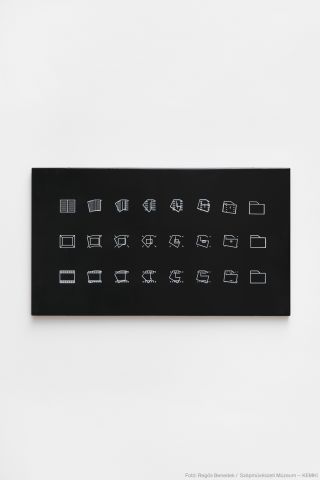‘archive’
ALBERT Ádám: System Analysis V, 2022–2023
… essential requirement when it comes to constructing an institutional structure—and especially an archive/collection. The vertically proceeding, Neurathian-type flow diagrams of morphing white shapes projected onto a black enamel surface reminiscent of a switched off monitor screen model this process along three possible paths, all leading to the same destination. The forms derived from textual, framed pictorial (painting, print, etc.), motion picture- and photography-based (perforated edge) …
Contemporary Art in KEMKI
… in the collections of the Museum of Fine Arts, the Hungarian National Gallery, and the KEMKI Archive and Documentation Centre (ADK). These works provide the opportunity for institutional self-reflection through the use of records and materials from the past, explore possible points of connection, and seek a contemporary approach. They reflect on the documents—be it in the form of texts or objects—preserved in the relevant collection units (e.g., KEMKI ADK’s archives and lectorate …
Mission and Goals
… strategy is based on the coordinated work of the institution's three distinct departments: the Archive and Documentation Center (ADK), the Artpool Research Center (Artpool) and the Research Department. The main tasks of the ADK and Artpool include the further expansion, the processing, the digitalisation and the dissemination of the collection holdings – predominantly manuscripts, documents and archive photos – and the implementation of relevant research projects and publications …
